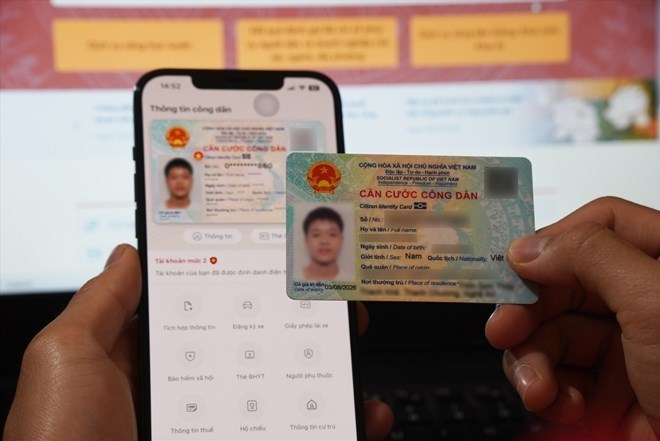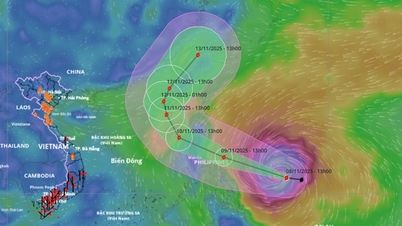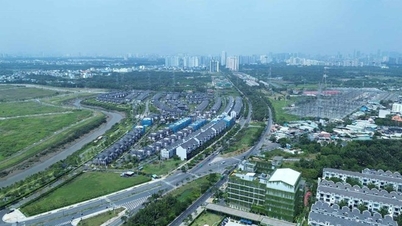
From July 1, 2024, the 2023 Law on Identification officially comes into effect.
This Law consists of 7 chapters and 46 articles, regulating the National Population Database, Identification Database; ID cards, electronic ID cards; ID certificates; rights, obligations, and responsibilities of relevant agencies, organizations, and individuals, and has many new points compared to the 2014 Law on Citizen Identification.
According to the investigation of Lao Dong reporter on March 24, 2024, the Ministry of Justice has just announced the appraisal file of the draft Decree detailing a number of articles and measures to implement the Law on Identification. The Ministry of Public Security is the agency in charge of drafting this draft Decree.
The Ministry of Public Security 's submission said that the draft Decree consists of 60 chapters and 40 articles. Of which, the collection, updating, adjustment, connection, sharing, and exploitation of information in the Identity Database includes 5 articles (from Article 14 to Article 18).
Article 14 of the draft Decree stipulates the collection, updating and adjustment of information in the Identity Database.
Accordingly, information on identity, biometric information on facial photos, fingerprints, and irises is collected and updated when carrying out procedures for issuing, exchanging, and re-issuing ID cards for citizens.
Before collecting and updating biometric information on DNA and voice into the Identity Database, the Identity Database management agency is responsible for coordinating with the agency or organization that has tested and analyzed the citizen's biometric information on DNA and voice to check, compare and authenticate to ensure the accuracy of the information.
Occupational information is collected, updated, and adjusted through connection and information sharing with national databases, other specialized databases, or provided by citizens during the process of issuing, exchanging, and reissuing ID cards.
Citizen information is only collected and updated in the Identity Database when it is verified that the information is correct. In case a citizen discovers that the information in the Identity Database is incorrect, he/she has the right to request the identity management agency to update and adjust it for accuracy.
The responsibility for collecting, updating and adjusting citizen information in the identification database is stipulated in Article 15 of the draft decree.
Accordingly, the identity management agency is responsible for collecting, updating, and adjusting information about citizens in the Identity Database through the issuance, exchange, and re-issuance of identity cards.
When issuing, exchanging, or re-issuing ID cards, if citizens do not have information or the information is incorrect, the ID management agency is responsible for guiding citizens to collect, update, and adjust information in the National Population Database according to the provisions of Article 7 of this Decree before issuing, exchanging, or re-issuing ID cards.
The identity management agency is responsible for coordinating with relevant agencies, organizations and individuals to check information when collecting, updating and adjusting information in the identity database to ensure accuracy and consistency.
Source link






![[Photo] Cutting hills to make way for people to travel on route 14E that suffered landslides](https://vphoto.vietnam.vn/thumb/1200x675/vietnam/resource/IMAGE/2025/11/08/1762599969318_ndo_br_thiet-ke-chua-co-ten-2025-11-08t154639923-png.webp)






















![[Photo] "Ship graveyard" on Xuan Dai Bay](https://vphoto.vietnam.vn/thumb/1200x675/vietnam/resource/IMAGE/2025/11/08/1762577162805_ndo_br_tb5-jpg.webp)







![[Video] Hue Monuments reopen to welcome visitors](https://vphoto.vietnam.vn/thumb/402x226/vietnam/resource/IMAGE/2025/11/05/1762301089171_dung01-05-43-09still013-jpg.webp)



































































Comment (0)